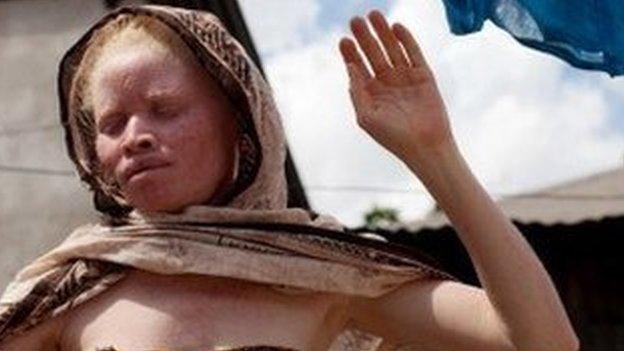Malawi albino attack survivor: 'I am too scared to sleep'
- Published
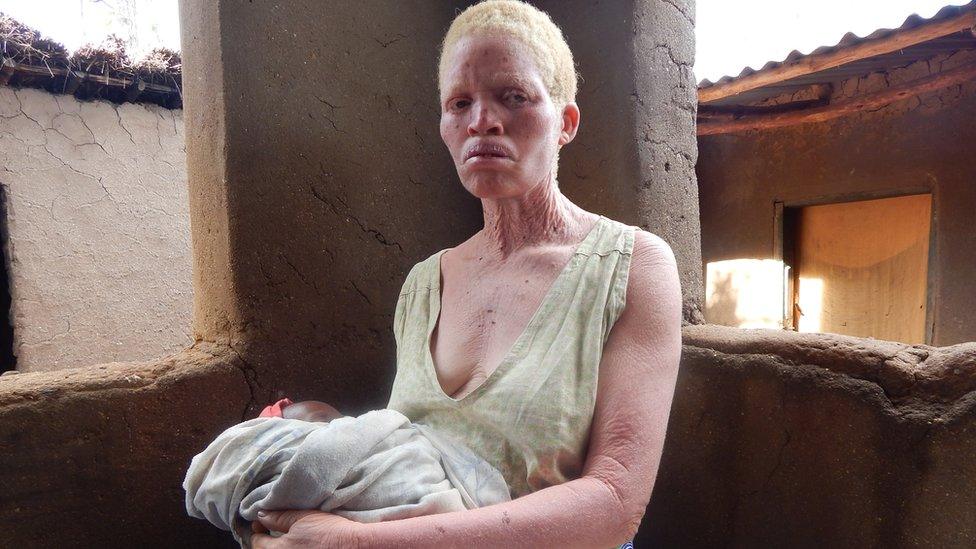
Femia Tchulani survived an attempted kidnapping in Malawi by people wanting to kill her for her body parts.
In Malawi, like other countries in the region, people with albinism are hunted down because of the belief that potions made from their body parts can bring good luck and wealth.
She told the BBC how a gang tried to lure her away from her home two years ago:

It was a Friday. Five men and one woman came here at about 7 o'clock in the evening.
They arrived when I was in the kitchen preparing our supper and my husband was outside here.
They told him that they were looking for me. That they were policemen, and had come to protect me because they had got a tip that some people were looking for me to kill me.
I was scared because these were total strangers. I had never seen them before.
There was such commotion here that some of our neighbours gathered.
And although they said they were policemen, they were not wearing uniform.
I wasn't convinced at first, but then they mentioned the name of the police chief from this area. We even asked them to describe the police chief, and they did.
In fact, they showed us guns and even identity cards. But of course we could not know whether they were genuine or not.
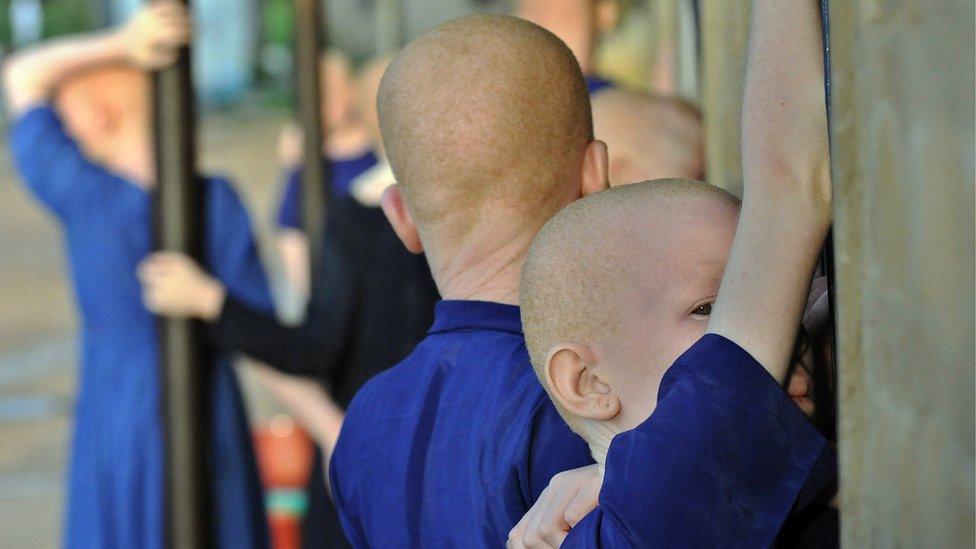
Without the protective pigment melanin in their skin, people with albinism are vulnerable to skin cancer and sight problems
That is when my husband and I, and some of the neighbours agreed to go with them to the police unit. When we got there, the police post was locked.
The five who claimed to be police officers called three other people from a nearby bar. And they now tried to force my husband and me to go to a station further from our area.
It was very strange because they sent away anyone else that was curious and wanted to stop by. So it was just me, my husband, and the neighbours who had come with us.
My husband insisted that they shouldn't take me away by myself. He kept arguing with them that we hadn't committed any crime; why were we going to be taken to a police station?
When they realised we had decided to stand our ground, they were very angry, and they just left.
I have never seen them again since that day - we know the policemen that operate in our area. But those people were strangers to all of us.
'Roof targeted'
My life has completely changed since then.
I have got eight children, some of whom to go secondary school.
Before the incident, I could go to the place where we buy vegetables in bulk, and I would go door to door selling them.
Now I am always afraid to move deep into the township. So all I'm left with is the bench at the market, where I sell from.
As a result, I cannot make enough money for my children's school fees, uniforms and even for food, because I have to restrict myself to the market stall. Now some of our children have been sent home from school.
I don't feel that the police or government are doing anything to protect people with albinism like me.

Albinos under attack in Malawi

Last year, a UN expert warned that Malawi's estimated 10,000 albinos face "extinction" if they continue to be murdered for their body parts
Since November 2014, 19 albinos have been killed and there have been more than 100 cases of attempted kidnapping and disappearances
Graves of albinos are also targeted by criminals who remove bones in order to sell them
Amnesty International says police lack investigative skills and the majority of cases remain unresolved
Activists say poverty contributes to the suspicion surrounding albinos and the belief their body parts can be sold for large sums of money.

I live by the grace of God. I just thank God when I wake up each morning. I still don't feel safe.
For instance last month, one night, some people tried to break into the house through the roof.
We woke up and raised an alarm; we came out of the house and shouted. That is when they run away.
The community is aware that people like us are at risk; especially the neighbours, and the women at the market.
That is why they asked the BBC team lots of questions when you came here, because they know what happened to me, and they don't want it to happen again.
When you look at my house, I don't even have good doors to protect me at night.
So night time for is me is like day. I am too scared to sleep. I am always afraid that maybe these people will come back.
So I would love the government to help me with a good house.
But I would also like my government to look into my welfare, because I am unable to work and earn enough income for my family because of what happened.
If that happened, I would be a happy person.
Interview by BBC Africa's Patience Atuhaire
- Published16 May 2016
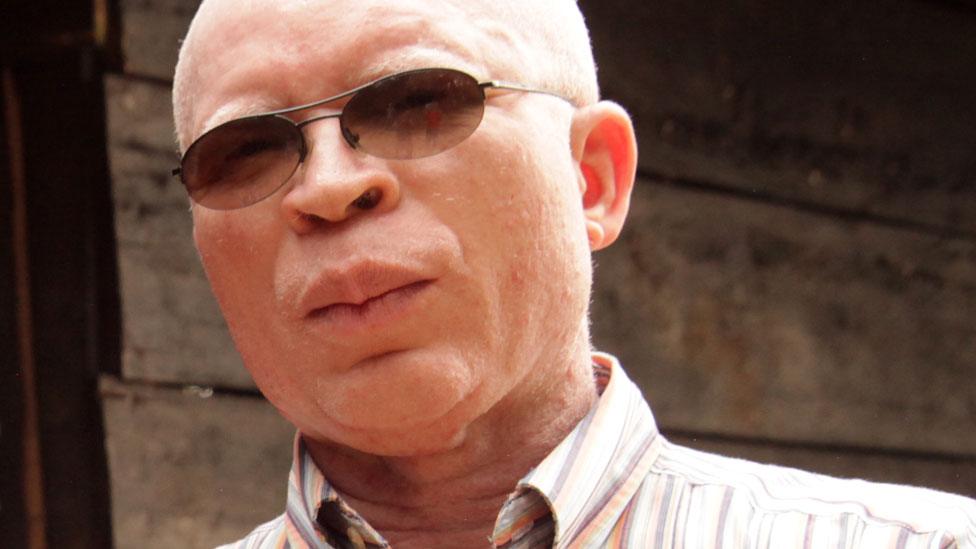
- Published4 June 2016
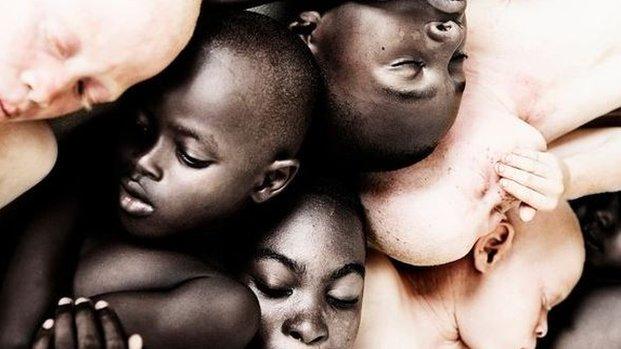
- Published21 October 2016
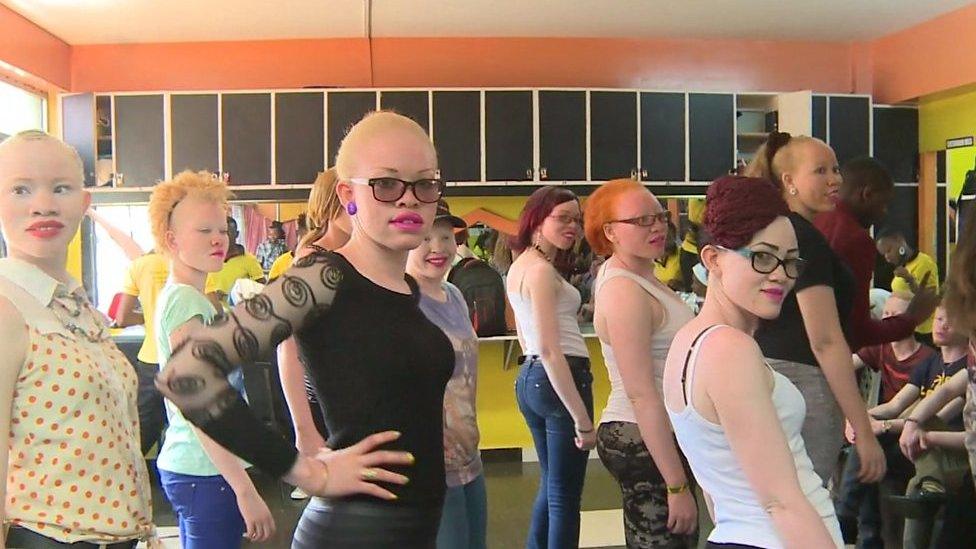
- Published9 December 2014
